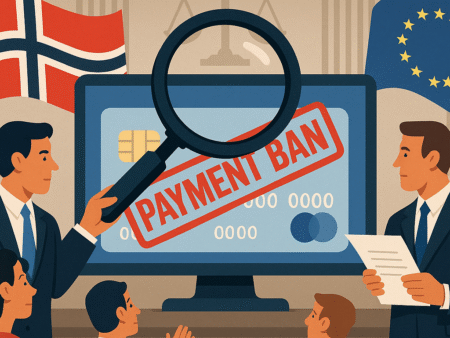
Sweden shook things up in 2025, when new rules landed for the gambling companies and their ads. They call it the Sweden ad transparency requirements, a push to protect people and rethink how gambling gets promoted. No more shady deals or ads you can’t trust. By making everything straightforward, Sweden raised the bar for rest of Europe.
Table of Contents
Why did Sweden roll out these ad transparency rules?
Gambling advertising in Sweden had mountain of problems. Players got burned by hidden rules. Consumer advocates shouted about ads being too pushy. People complained and for good reason.
What bothered folks
- Operators most often hid real wagering demands.
- Promos slipped through to vulnerable people, even those in self-exclusion.
- Families got flooded with non-stop gambling ads. Annoying and stressful.
Lawmakers figured only way forward used the Spelinspektionen guidelines, all about fairness and truth.
Main parts of Sweden’s gambling ad reform
The whole thing boils down to four big changes. Each one fixes something broken with old setup. Together they promise safer, clearer playing field.
1. Clear, Honest Bonus Deals
Bonus offers, the classic trap. Big letters said “free spins” but the catch hid in tiny print. Most people only found out about time limits or strict wagering after they’d paid up. Anger, confusion. That’s over. From now on, every condition sits front and center, spelled out in simple words. If you play, you know the deal.You avoid nasty surprises.
2. Ads That Respect Age Lines
Protecting young people is key. Old campaigns sometimes used cartoons, bright colors, even influencers chased by the teenagers. That blurred the line between fun for kids and things only for grownups. New rules? Gamblers have to double-check everything so kids don’t get targeted. It’s not just about law. It’s about doing right thing and keeping gambling in adult territory.
3. Respect Self-Exclusion
Sweden built a national self-exclusion system so people can block themselves from all licensed gambling. Problem was, promo emails and ads still slipped through sometimes, usually by accident or sloppy record keeping. The update leaves no room for mistakes. If someone says “I’m out,” then operators have to keep that promise. Accurate records, up-to-date exclusion lists, no exceptions. You only get new offers if you choose to opt back in after your time-out finishes.
4. Safer Play in Every Ad
Now, every gambling advert comes with gentle nudge about staying safe. Could be a note about setting personal limits. Could be details about support hotlines. Maybe links for problem gambling help. The point isn’t to scare everyone. It’s about normalizing safety, just like warnings on alcohol or tobacco. By including these hints everywhere, the industry shows gambling is supposed to be controlled fun, not a way out of trouble.
All together, these four changes mean the businesses need fresh playbook. Less hard selling, more honest info. Respect for players. In the long run? It might mean a more solid, trustworthy gambling world for everyone.
Role of Spelinspektionen Guidelines
Not just on the gambling companies. The job of keeping everyone in line with new advertising rules? It lands on a national authority, which holds an important spot in making these reforms actually work. Think watchdog and mentor rolled into one. They poke around for slip-ups, sure but they also guide businesses so they know what’s expected.
One job really stands out.They check marketing campaigns. Seriously. Every ad, video or banner, influencer deal, affiliate site, you name it. They don’t skim. They check if ads tell the truth, if everything’s spelled out and nothing’s left fuzzy. Even small stuff like text placement or which photos companies use. If anything feels off or unfair, they call it out.
Bonuses, too. Used to be, companies snuck in hidden strings and players only figured out the fine print after joining. Now the regulator won’t let that sneak by. Operators must spell out all conditions in plain words. This new push? It helps people actually know what they’re signing up for. Less grumbling and more trust.
Affiliates are in hot seat as well. These folks bring tons of online traffic, and if they cross the line, the regulator steps in fast. Lax tracking isn’t on table. Licensed operators must watch their partners closely and step up if something goes sideways.
Messed up? The fallout is real. Fines. Public warnings. Bad press. If you really push it, you can lose your license completely and once it’s gone, you’re out of business. These penalties aren’t just for punishing mistakes. They scare others straight too so everyone keeps the rules top of mind.
The whole system works like net, catching rule-breakers early and making sure honesty isn’t just a nice extra. It’s law of land.
Impact on Operators
Licensed operators? They’ve got lots to change.
- Marketing teams need to rethink every campaign. Bonus offers must be crystal clear, no tricks.
- Compliance teams must keep tabs on affiliates, watch for rule breaks and make sure gambling advertising of Sweden doesn’t overstep.
- Costs go up. Companies have to spend more fixing systems so they fit Spelinspektionen guidelines.
Sweden ad transparency requirements make things harder at first. But maybe later, the industry becomes more trusted, more steady.
Benefits for Players
Players come first here.
- They’ll finally get plain talk about bonuses rather than secret catches.
- Responsible gambling of Sweden messages pop up everywhere, offering tools and help.
- Too much gambling advertising of Sweden gets dialed down. Helps shield those most at risk.
Sweden ad transparency rules? They make it safer for everyone.
Positive and Negative Industry Sentiment
Mixed reviews. Big time.
- The sunny side. Advocates say the Sweden ad transparency rules bring back trust and keep people safe.
- The stormy side. Operators complain. Stricter Spelinspektionen guidelines cost more and make it tough to compete.
Trying to keep gambling responsible in Sweden without killing profit? It’s tightrope walk.
International Comparisons
- UK: Gambling ads can’t use celebrities that appeal to young people.
- Spain: Heavy controls on broadcast ads.
- Netherlands: Bans almost all non-targeted gambling advertising Sweden.
Sweden? Instead of just cutting back volume, they picked bonus offer transparency.
Long-Term Impact on Responsible Gambling Sweden
Putting responsible gambling Sweden messages into every single ad changes culture (one campaign at a time). Eventually, people expect ads to be clear and honest.
Sweden ad transparency requirements might spark copycats in other places. By weaving together bonus offer transparency marketing honesty and Spelinspektionen guidelines the Sweden’s trying to lead way on safe play.
Authors’ take
Sweden’s reforms stand out. They aren’t just small update in rules but feel like an big step in ongoing chat about how Europe should handle gambling. So, advertising isn’t free to run wild anymore.Now, rules say it’s got to put honesty and safety front and center before flashy promos or confusing details. Companies have to spell things out clearly and drop the sneaky stuff. The new system doesn’t just support local businesses-it’s a message to everyone in industry, wherever they’re based.
For folks who like to play, these changes look good. Offers get easier to figure out. Honest conditions show up first not stuck in tiny print at bottom. That helps people avoid nasty shocks and trust gambling sites more. Makes it easier to choose where and how to play. People who might get in over their heads get better shield from pushy ads. You can see this as Sweden putting real effort into building trust.
Companies face some tricky spots though. Following the fresh rules means teaching their marketing people new stuff, rewriting the promos, maybe even changing whole way they talk to customers. Extra checks, closer talks with the rule-makers. More money spent. Some might call all this chore. Others see chance to stand out-“We keep you safe, we do things right.” That sort of message sticks.
One thing’s clear. Sweden is betting on transparency instead chasing quick cash. The country is putting down a marker. The future of gambling (at least here) isn’t about loud ads. It’s about keeping things steady and looking after customers. By making honesty and fairness the backbone Sweden steps up as leader in making gambling safer.The rest of Europe (maybe the world) will watch what happens next. If it works, don’t be surprised if other places start picking up the same playbook.











